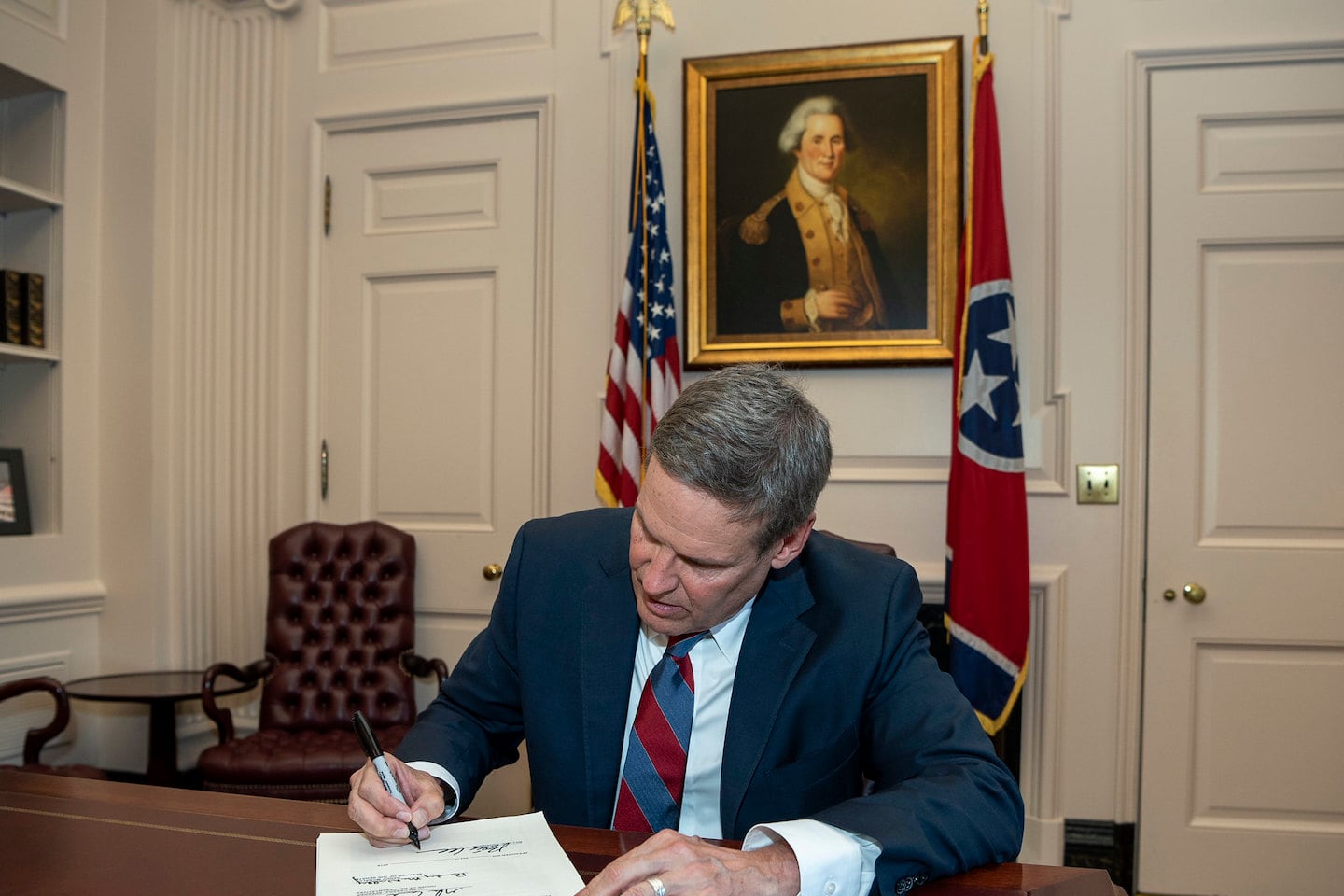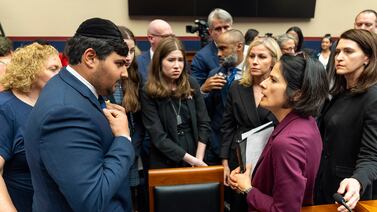Gov. Bill Lee on Monday signed a bill into law that will restrict what public school teachers can discuss in Tennessee classrooms about racism, white privilege, and unconscious bias.
The Republican governor signed the bill without comment, following its passage along partisan lines earlier this month.
The new law, which essentially takes effect with the 2021-22 school year, will allow Tennessee Education Commissioner Penny Schwinn to withhold funds from schools and districts where teachers promote certain concepts about racism, sexism, bias, and other social issues that GOP lawmakers believe are cynical and divisive.
Among the 14 concepts that teachers will not be able to discuss: that one race bears responsibility for past actions against another; the United States is fundamentally racist; and a person is inherently privileged or oppressive due to their race.
Casey Black, the governor’s press secretary, said Lee “believes Tennessee students should be taught history and civics with facts, not divisive political commentary.”
Tennessee now joins Idaho and Oklahoma in placing legal limits on how teachers can discuss race, while a bill in Iowa is awaiting the governor’s signature. Similar legislation is being considered in other states. A proposal filed last week in Michigan would cut funding to schools that teach critical race theory, a field of study more typically found at the college level that delves into U.S. race relations and how policies and the law perpetuate systemic racism.
The signing in Tennessee came a week after the bill reached Lee’s desk and despite calls for a veto from Democrats who voted unanimously against the measure and numerous entities opposing it, including the Memphis City Council and Shelby County Commission.
Lee also received a letter signed by more than 350 teachers, parents, and education leaders asking him to let teachers “lead their classrooms through important historical lessons and honest social discussions without the fear of repercussion.”
Diarese George, executive director of the Tennessee Educators of Color Alliance, which spearheaded the letter, said the new law will be disheartening and discouraging to both educators and students.
“This not only perpetuates harm and hurt for many marginalized students and students of color, but it is an indictment on our ability to humanize lived experiences with healthy civil discourse,” George said Monday night.
Tennessee’s legislation was filed with three days left in the nearly four-month-long session and easily passed under a Republican supermajority.
The Tennessee Department of Education has since been reviewing the bill’s language and is expected to issue guidance to help educators understand the new guardrails.
“As always, if a bill is signed into law, the department will implement the legislation with fidelity and provide additional information and guidance to [districts] as appropriate at that time,” a spokesman said earlier this month.
You can read all 14 tenets in section 51 of the bill here.








